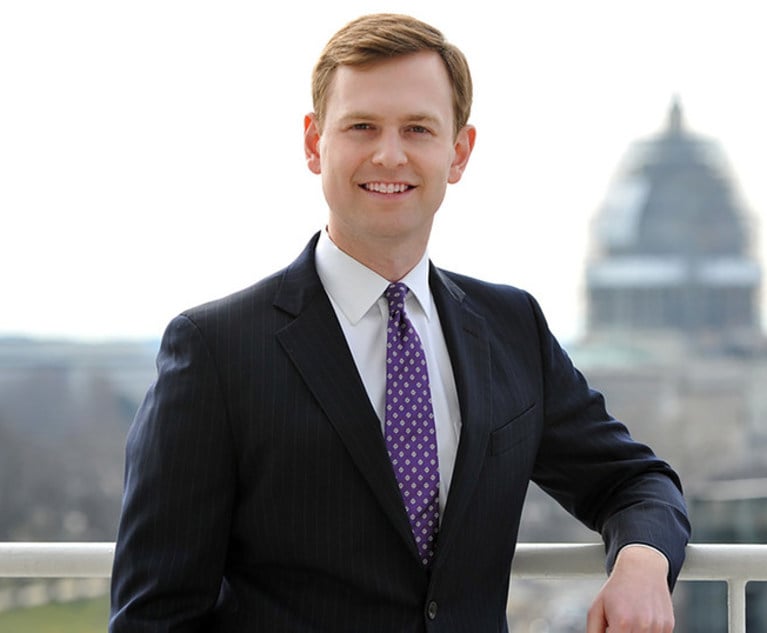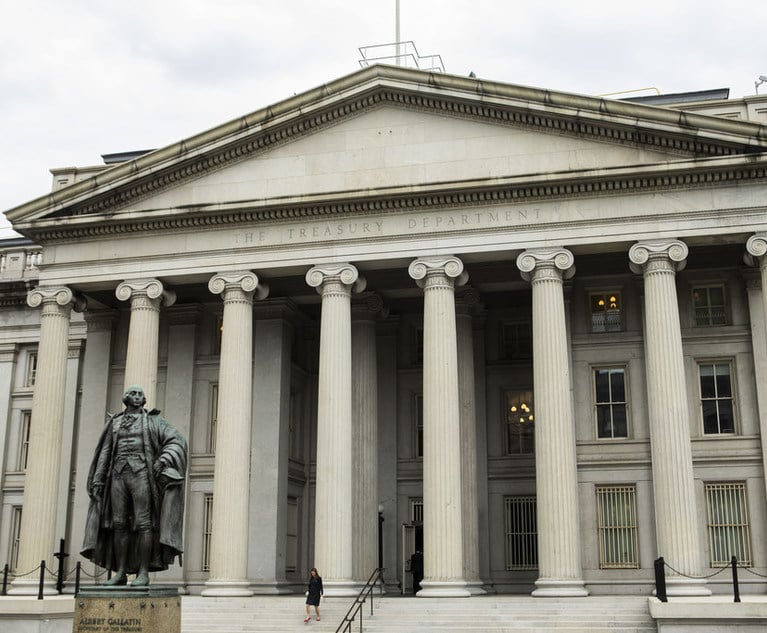A proposal to overhaul tax-exempt law
House Oversight Committee listens to law professor's ideas with an open mind
August 22, 2012 at 08:00 PM
4 minute read
It was like a skunk at a garden party, and to a large segment of the tax-exempt sector, the testimony at this summer's congressional hearing had to have been odiferous.
The testimony was that of University of Illinois law professor John D. Colombo. He told the House Oversight Subcommittee it should consider taking away the tax exemptions of most of the biggest charities in the country, including almost all the non-profit hospitals and universities. The congressmen did not reject his suggestion out of hand, nor did his colleagues on the witness panel challenge it. Why? Probably because Congress has finally begun a serious review of tax-exempt law, and it is willing to at least hear from those who think the current system needs a major overhaul. For the moment, at least, everything is on the table.
Continuing with the animal metaphor, the huge elephant in the tax-exempt room, according to Professor Colombo, is that many fee-for-service charities are indistinguishable from for-profit businesses. Why should a hospital, for example, get a tax exemption for providing a service that its patients pay for? The exemption, in effect, gives the charity hospital an unfair advantage over the for-profit hospital with which it competes for patients. He says the IRS should focus on whether the activity deserves a tax break—not the type of organization engaged in the activity. If the non-profit hospital charges for all of its services, it isn't doing anything charitable.
His position is based on the sensible view that if the market provides a product or service, that is commercial activity that does not deserve a tax benefit. If the so-called charitable hospital is behaving exactly like its for-profit competitor, it should pay tax on its earnings. If it is a “real” charity, it will have no real net earnings because all the extra money will have gone back into health care rather than to shareholders, which means it would not pay taxes anyway. No harm to charity will be done. In the meantime, we will have taken a step toward a fairer tax system.
Thus, the focus is on the activity. The test would be whether the activity is genuinely charitable or commercial. How can you tell when something is charitable? Simple—it is charity when the market won't do it. And the market does not provide free or below-cost health care. Colombo cited extensive existing precedents the IRS could rely on to determine whether an activity is commercial.
Colombo continued his focus on the commerciality of the charitable sector and his desire to promote “tax coherence” within it. He also proposed that all charities should be taxed on all revenue they might get from commercial activity, whether or not it is related to their missions. Thus, a soup kitchen would be taxed on sales of its canned soup. The result is fair treatment of commercial soup retailers, the IRS doesn't have to decide how “related” such sales are to the charitable mission and the overall corporate tax base is protected. The implications for such a tax change would be enormous and would likely result in a significant shift of tax-exempt sector resources—for the better, Colombo argues.
Basically, Colombo's thoughtful proposals aim to dismantle the tangle of law and regulation that has grown up around the mostly large and well-funded non-profit organizations that have used their assets in the commercial sphere to generate more revenue. He would separate all of it in the interest of genuine charity and economic efficiency.
My guess is that none of his proposals will come to pass despite their internal logic, simplicity and potential benefit. There are too many influential interests in the tax-exempt sector (as there are in all sectors of the economy) that prefer the status quo. But at least Congress is listening with an open mind, and so far it doesn't smell anything fishy.
Bruce D. Collins is corporate vice president and general counsel of C-SPAN, based in Washington, D.C. Email him at [email protected].
This content has been archived. It is available through our partners, LexisNexis® and Bloomberg Law.
To view this content, please continue to their sites.
Not a Lexis Subscriber?
Subscribe Now
Not a Bloomberg Law Subscriber?
Subscribe Now
NOT FOR REPRINT
© 2025 ALM Global, LLC, All Rights Reserved. Request academic re-use from www.copyright.com. All other uses, submit a request to [email protected]. For more information visit Asset & Logo Licensing.
You Might Like
View All
Internal Whistleblowing Surged Globally in 2024, So Why Were US Numbers Flat?
6 minute read
FTC Finalizes Child Online Privacy Rule Updates, But Ferguson Eyes Further Changes

Supreme Court Reinstates Corporate Disclosure Law Pending Challenge
Trending Stories
Who Got The Work
J. Brugh Lower of Gibbons has entered an appearance for industrial equipment supplier Devco Corporation in a pending trademark infringement lawsuit. The suit, accusing the defendant of selling knock-off Graco products, was filed Dec. 18 in New Jersey District Court by Rivkin Radler on behalf of Graco Inc. and Graco Minnesota. The case, assigned to U.S. District Judge Zahid N. Quraishi, is 3:24-cv-11294, Graco Inc. et al v. Devco Corporation.
Who Got The Work
Rebecca Maller-Stein and Kent A. Yalowitz of Arnold & Porter Kaye Scholer have entered their appearances for Hanaco Venture Capital and its executives, Lior Prosor and David Frankel, in a pending securities lawsuit. The action, filed on Dec. 24 in New York Southern District Court by Zell, Aron & Co. on behalf of Goldeneye Advisors, accuses the defendants of negligently and fraudulently managing the plaintiff's $1 million investment. The case, assigned to U.S. District Judge Vernon S. Broderick, is 1:24-cv-09918, Goldeneye Advisors, LLC v. Hanaco Venture Capital, Ltd. et al.
Who Got The Work
Attorneys from A&O Shearman has stepped in as defense counsel for Toronto-Dominion Bank and other defendants in a pending securities class action. The suit, filed Dec. 11 in New York Southern District Court by Bleichmar Fonti & Auld, accuses the defendants of concealing the bank's 'pervasive' deficiencies in regards to its compliance with the Bank Secrecy Act and the quality of its anti-money laundering controls. The case, assigned to U.S. District Judge Arun Subramanian, is 1:24-cv-09445, Gonzalez v. The Toronto-Dominion Bank et al.
Who Got The Work
Crown Castle International, a Pennsylvania company providing shared communications infrastructure, has turned to Luke D. Wolf of Gordon Rees Scully Mansukhani to fend off a pending breach-of-contract lawsuit. The court action, filed Nov. 25 in Michigan Eastern District Court by Hooper Hathaway PC on behalf of The Town Residences LLC, accuses Crown Castle of failing to transfer approximately $30,000 in utility payments from T-Mobile in breach of a roof-top lease and assignment agreement. The case, assigned to U.S. District Judge Susan K. Declercq, is 2:24-cv-13131, The Town Residences LLC v. T-Mobile US, Inc. et al.
Who Got The Work
Wilfred P. Coronato and Daniel M. Schwartz of McCarter & English have stepped in as defense counsel to Electrolux Home Products Inc. in a pending product liability lawsuit. The court action, filed Nov. 26 in New York Eastern District Court by Poulos Lopiccolo PC and Nagel Rice LLP on behalf of David Stern, alleges that the defendant's refrigerators’ drawers and shelving repeatedly break and fall apart within months after purchase. The case, assigned to U.S. District Judge Joan M. Azrack, is 2:24-cv-08204, Stern v. Electrolux Home Products, Inc.
Featured Firms
Law Offices of Gary Martin Hays & Associates, P.C.
(470) 294-1674
Law Offices of Mark E. Salomone
(857) 444-6468
Smith & Hassler
(713) 739-1250







